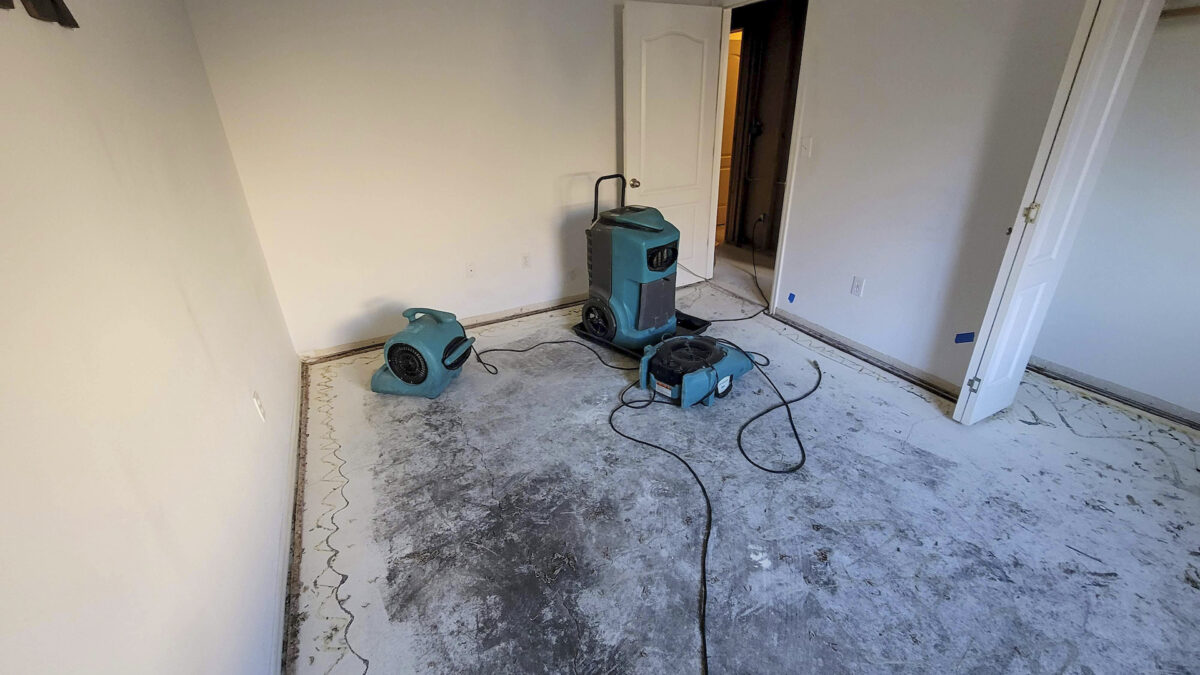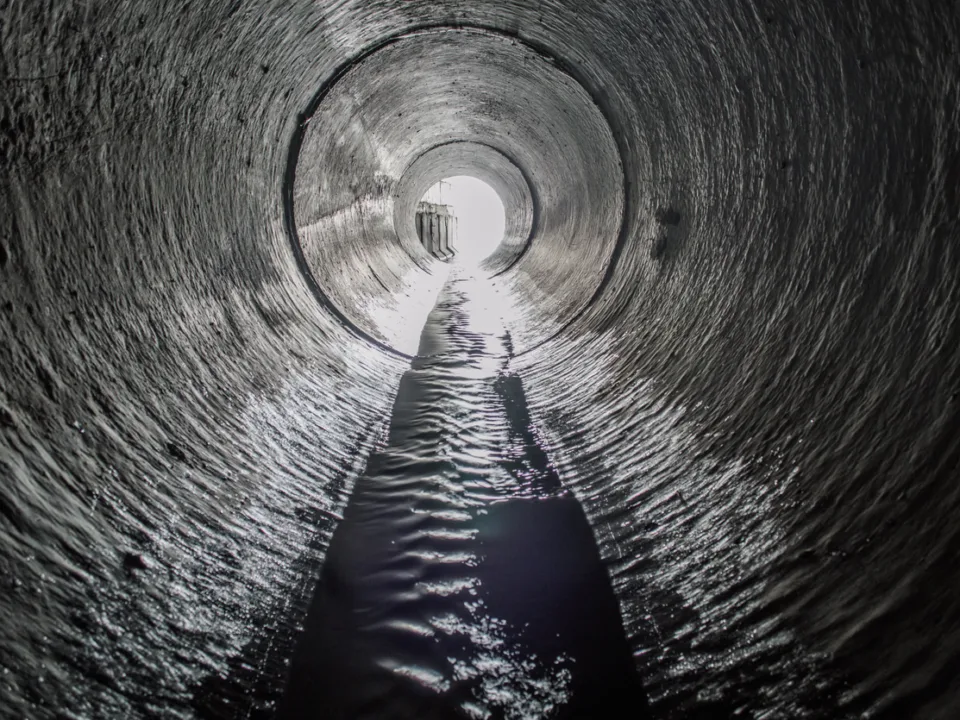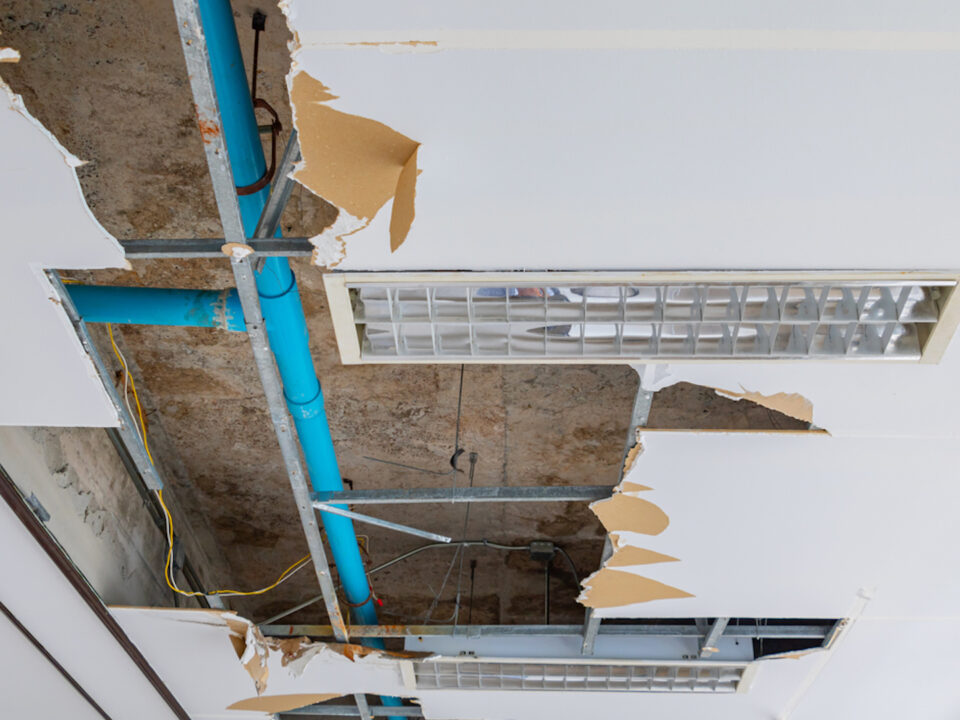Common Types of Water Damage and How to Avoid Them
Water damage can wreak havoc on your home and lead to costly repairs and disruptions. Understanding the common types of water damage and taking proactive measures to prevent them can help protect your property year-round. In this blog post, we will explore the different types of water damage, provide practical tips to avoid them and emphasize the importance of prompt action in case of water damage incidents.
Identifying Common Types of Water Damage
Water damage can occur in various forms, including flooding from heavy rain or natural disasters, plumbing leaks, roof leaks, condensation, appliance malfunctions, and foundation or basement seepage. Each type of water damage poses its risks and requires specific preventive measures.
To prevent flooding, ensure that your property has proper drainage systems, and clear gutters and downspouts regularly to allow water to flow freely. Regular inspections of your plumbing system and fixtures can help detect and repair leaks promptly. Adequate roof maintenance, including regular inspections and repairs, can prevent roof leaks. Proper ventilation and dehumidification can help control condensation and moisture buildup. Regularly inspecting appliances, such as water heaters and washing machines, for signs of leaks or malfunctions can help prevent water damage. Additionally, proper grading and landscaping can divert water away from your foundation, reducing the risk of basement or foundation seepage.
Preventing Water Damage: Year-Round Tips for the Dallas-Fort Worth Area
Taking proactive measures to prevent water damage is crucial. Here are some practical tips to consider:
- Regular Maintenance:
- Inspect your roof, gutters, and downspouts at least twice a year.
- Seal any gaps or cracks in the foundation and walls.
- Maintain proper ventilation and insulation in your home.
- Plumbing System:
- Check for leaks in pipes and faucets regularly.
- Insulate exposed pipes during colder months to prevent freezing and bursting.
- Keep an eye out for signs of water damage around toilets, sinks, and showers.
- Appliances and Fixtures:
- Monitor the condition of your water heater, washing machine, dishwasher, and other appliances that use water.
- Replace worn-out hoses and connectors.
- Consider installing water leak detection systems for early detection of leaks.
- Indoor Humidity Control:
- Maintain optimal indoor humidity levels (around 30-50%).
- Use dehumidifiers in areas prone to excess moisture, such as basements and bathrooms.
- Ensure proper ventilation in bathrooms and kitchens.
Immediate Steps After Water Damage Occurs
Despite preventive measures, water damage incidents can still occur. It’s crucial to act promptly to minimize further damage. If you experience water damage:
- Stop the Water Source:
- Identify and shut off the water source causing the damage.
- Turn off the main water supply if necessary.
- Document and Contact Professionals:
- Take photographs or videos of the damage for insurance purposes.
- Contact a professional water damage restoration company like Texas Disaster Restoration to assess the extent of the damage and initiate the restoration process.
- Notify your insurance provider about the incident.
Water Damage Prevention FAQs
Q: How can I detect hidden water leaks in my home?
A: Hidden water leaks can cause significant damage over time. Look out for signs such as unusually high water bills, musty odors, water stains, or peeling paint. Regularly inspect areas prone to leaks, such as under sinks, around toilets, and behind appliances. Consider using water leak detection devices or smart water sensors that can alert you to potential leaks and help you take prompt action.
Q: How often should I clean my gutters and downspouts?
A: Regular gutter and downspout maintenance is crucial to prevent water damage. Clean them at least twice a year, ideally in the spring and fall. However, if you have overhanging trees or live in an area with heavy rainfall, more frequent cleanings may be necessary. Ensure that gutters and downspouts are free of debris to allow proper water flow and prevent overflow or water accumulation.
Q: What should I do if I experience a major water leak or flood?
A: If you experience a major water leak or flood, follow these immediate steps:
- Turn off the main water supply or the specific water source causing the issue.
- Ensure personal safety and switch off electrical power in affected areas if it can be done safely.
- Remove valuable items from the affected area and contact a professional water damage restoration company like Texas Disaster Restoration.
- Avoid DIY cleanup unless it’s safe to do so, as water damage can lead to structural instability and potential health hazards.
Q: Can I handle water damage restoration on my own?
A: While minor water damage may be manageable for homeowners to address on their own, significant water damage requires professional expertise. Professional water damage restoration companies have the necessary knowledge, experience, and specialized equipment to assess the extent of damage, mitigate risks, and restore your property efficiently. DIY attempts may result in inadequate drying, mold growth, or incomplete restoration.
Q: How can I prevent water damage while I am away from home for an extended period?
A: If you’ll be away from home for an extended period, take these precautions to prevent water damage:
- Shut off the main water supply to your property.
- Consider installing a water leak detection system that can alert you to any issues.
- Have someone check your property periodically to ensure everything is in order.
- Insulate pipes to prevent freezing during cold weather.
- Keep your emergency contact information handy in case of any emergencies.
If you have further questions or concerns about water damage prevention, consult with water damage restoration professionals like Texas Disaster Restoration. They can provide tailored advice based on your specific situation and offer expert guidance to protect your home from water damage year-round.
Contact Texas Disaster Restoration in the Dallas-Fort Worth Area for Your Water Damage Restoration Needs
If you’re facing water damage in your home, don’t hesitate to reach out to Texas Disaster Restoration. Our team of experienced professionals is ready to assist you in restoring your property to its pre-damaged state. We understand the stress and urgency that comes with water damage incidents, and we are here to provide you with reliable and efficient restoration services. With our expertise, state-of-the-art equipment, and commitment to customer satisfaction, we will work tirelessly to ensure your home is restored to its full glory. Contact us today to schedule a consultation.









